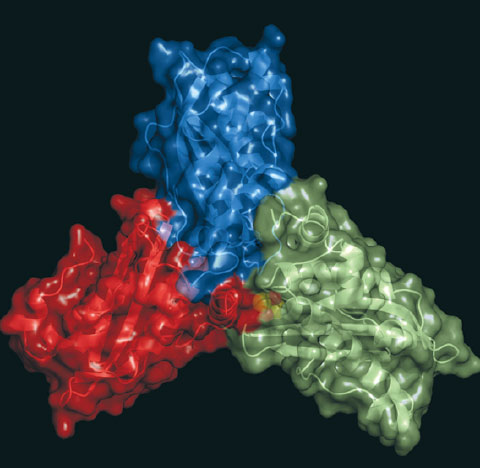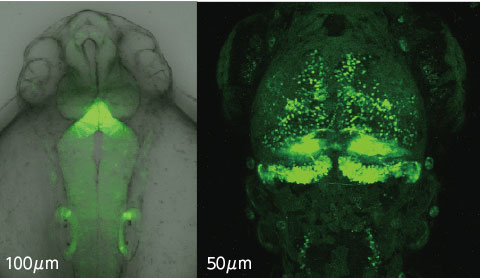Educational and Research Objectives
One of the main educational and research objectives in Life Science is to develop human resources who can deeply understand fundamental phenomena of life and will proactively work to maintain the biological environment and tackle various challenges surrounding the living world. This objective can be accomplished through two types of education: 1) the education needed to understand the mechanics of life from the genome constitution of living organisms and the structure and function of biomolecules that are under the control of the former; 2) the education needed to understand the mechanism of controlling life phenomena on the levels of genes, cells, tissue, organs, and individual organisms.Biochemistry and Molecular Biology Program

In the Molecular Biology Course, we are pursuing basic research aimed at a comprehensive understanding of life phenomena and subsequent application research, focusing on biomolecules such as nucleic acids, proteins, carbohydrates, and lipids, as well as the genome information of living organisms. In the field of biochemistry/molecular genetics, we are conducting the following studies using the genome information of Escherichia coli and Bacillus subtilis: 1) genetic biochemistry and structural biology concerning the biosynthetic mechanisms of iron-sulfur proteins; 2) genetics and cellular biology concerning the physiology of membrane lipids; 3) the survival strategies and gene expression mechanisms of bacteria and bacteriophages that become infected with bacteria; 4) cell-wall-related enzymes and genes using higher plants. In the field of molecular and cellular physiology, we are conducting the following studies using the genome information of photosynthetic organisms such as blue-green algae and higher plants: 1) the biochemical and gene expression mechanisms in response to environmental stresses; 2) the biosynthesis, intercellular transport, and physiology of membrane lipids; 3) the improvement of fat productivity; 4) the functional characterization of membrane transport proteins and the regulation of expression of photosynthesis genes; 5) long-distance signaling in plants using novel microscopy. Students who take this course participate in one of these research activities. They will master the knowledge and skills needed for research implementation. At the same time, they will hone paper writing and presentation skills through the presentation of their research results.
Regulatory Biology Program

The course consists of three fields related to integrative biology, genetic information biology, and adaptation biology. In the field of integrative biology, we are conducting the following studies: 1) the analysis of neuroendocrine regulatory mechanisms using mammals; 2) behavior and learning; 3) cell proliferation and differentiation using cultured cells; 4) the structure and function of new useful proteins. In the field of genetic information biology, we are conducting the following studies: 1) the analysis of gene expression mechanism of fungi; 2) the research of DNA repair and cell death; 3) the molecular biological and developmental genetics research on the development of vertebrates; 4) the analysis of gene expression regulation mechanism in development. In the field of adaptation biology, we are conducting the following studies: 1) the analysis of plant environmental responses including stress responses and signaling mechanisms; 2) the analysis of cell differentiation/morphogenetic processes using tissue culture; 3) the correlation between the microstructure and function of plant cells. In this course, students receive lectures on their respective specialized fields from the teachers in charge of the above research activities to acquire leading-edge knowledge and learn the research strategies and research methods needed for project implementation.


